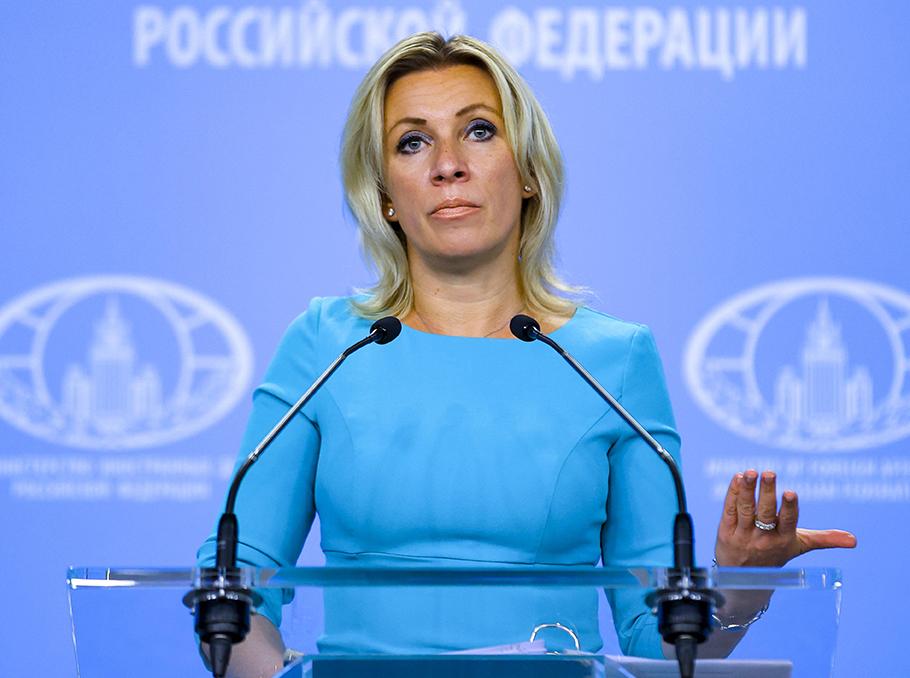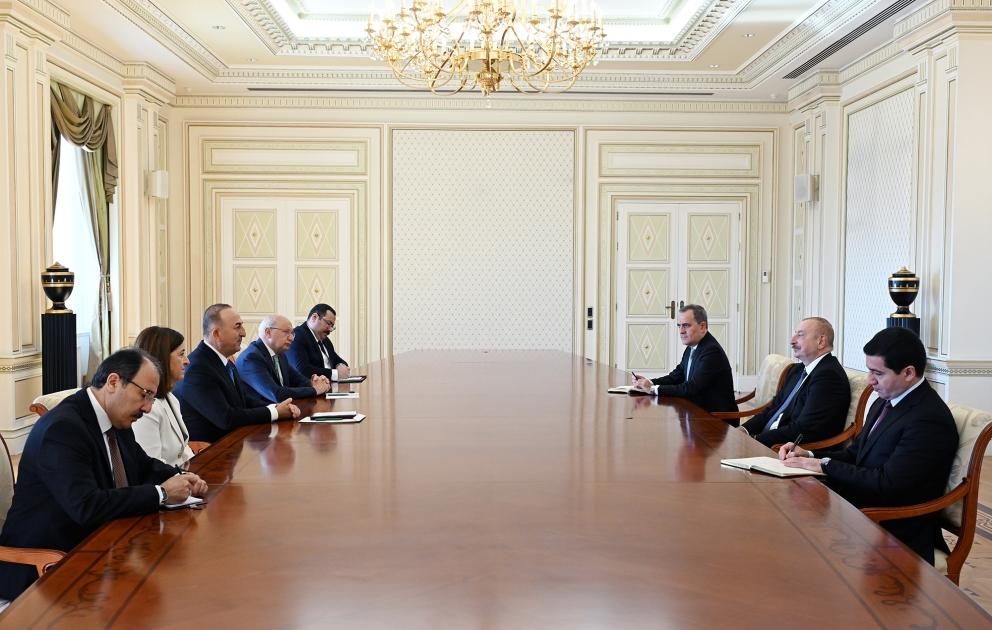Armenia's Westward shift - risky game with regional stability The choice that couldn't avoid accountability
As one of my colleagues recently remarked, "Armenia is certainly integrating, but not into the European Union, as its leaders dream, but into neighboring states as a vilayet. Despite warnings from its traditional allies and regional states, Nikol Pashinyan's regime continues to play a dangerous game that jeopardizes, first and foremost, Armenian statehood itself.
A new stage in the aggravation of the situation was the meeting of Armenia, the United States and the European Union on April 5 in Brussels. Many loud words were uttered at this event. In particular: "The European Union and the United States support a stable, peaceful, secure, democratic and prosperous future for the Republic of Armenia and the region. In this context, we aim to enhance cooperation aimed at strengthening the resilience of the Republic of Armenia, including in key areas such as political reforms, economic development, and humanitarian assistance. We will seek to expand our partnership in areas such as, for example, mobility, governance, law enforcement, trade, communications, agriculture, energy and technology." But the beautiful turns of phrase hardly assuaged the concerns of professional politicians.
First of all, the meeting in the Belgian capital was extremely negatively perceived in Russia. According to Igor Korotchenko, head of the Caspian Institute for Strategic Studies (RF), this meeting was a clear signal to Moscow that Yerevan is clearly choosing the West's side in the global confrontation between the great powers. Although economic cooperation was officially discussed in Brussels, the Kremlin has no doubt that behind closed doors they were talking about military cooperation. On the one hand, this will lead to the expulsion of Russian border guards and military bases from Armenian territory, and on the other hand, to their replacement by contingents of NATO countries. It is possible that we are talking about the establishment of a French military base. According to Russian Foreign Ministry spokeswoman Maria Zakharova, the Armenian authorities are "selling out their people" by severing ties with Russia for the sake of bonuses from the United States and the EU.

Moscow's discontent has also intensified after Yerevan's recent inclusion in the policy of anti-Russian sanctions. Thus, since March 30 this year, the Russian payment system "Mir" has ceased to operate in Armenia. On this occasion, the head of the European Commission Ursula von der Leyen said: "I thank Armenia for the measures taken to fight against the circumvention of anti-Russian sanctions. This shows that the European Union and Armenia share common values and interests." In turn, the Russian Foreign Ministry noted that the victims of the new policy will be tourists and Armenian guest workers who work in Russia. "We regret to state that Yerevan has submitted to the pressure of the West in this matter as well," the Russian Foreign Ministry said in a statement.
The meeting in Brussels caused discontent in Baku as well. "At present, processes in the world, including in the South Caucasus are developing in a very dangerous direction, and Azerbaijan rightly expresses its concern in this regard. Thus, the plans outlined for the South Caucasus in the future may lead to a great catastrophe," Azerbaijani President Ilham Aliyev said, receiving in Baku the former Turkish Foreign Minister, MP of the Turkish Grand National Assembly and head of the delegation to the NATO Parliamentary Assembly Mevlut Cavusoglu.

Even though US Secretary of State Antony Blinken personally called President Aliyev and assured that it is only about economic cooperation, Baku is sure that in fact it is about military cooperation between Armenia and the West.
In addition to Russia and Azerbaijan, there is a third player who is concerned about Armenia's pro-Western drift. This is, of course, Iran. Tehran has supported Yerevan for a long time, but the prospect of US or European troops on the northern border causes serious concern for Iran. At a press conference in Moscow, Iranian Ambassador Kazem Jalali said: "The issues of the Caucasus should be solved in the Caucasus. For example, in the 3+3 format. Interference from outside is inadmissible. Extra-regional forces are only engaged in inflaming the situation. We hope that a meeting in the 3+3 format will be held soon in one of the six countries of the region. Iran has close ties with its neighbors - Armenia and Azerbaijan. We have always recommended our neighbors to avoid the presence of extra-regional powers. I repeat, regional problems should be solved by the countries of the region. We have proposed the 3+3 format. We hope that Georgia will also join this mechanism". Even earlier, Iranian President Raisi noted at the meeting with the Armenian Prime Minister that "we do not agree with the presence of foreign forces in the region under the pretext of solving problems". However, Tehran has not yet made any concrete statements on the Brussels meeting.
The meeting in Brussels also worried Ankara. The Turkish Foreign Ministry said in a statement that "we once again call on third countries to pay attention to the parameters of the region when taking steps in the ongoing processes and to maintain an equal distance between the sides.

Thus, virtually all of Yerevan's neighbors and partners are unanimous on the issue of Armenia's rapprochement with the EU and the United States. Only European politicians who want to fish in troubled waters are satisfied. Thus, Renewed Europe MEP Nathalie Loiseau (Horizons, France), chairwoman of the subcommittee on security and defense, said: "We must finally convince Baku and Moscow to respect democracy and the Armenian people. Moscow's desire is to attack a government that has done the unthinkable in the eyes of Vladimir Putin: democratizing the country, reforming it, supporting the International Criminal Court and freezing its participation in the Russian-dominated Collective Security Treaty Organization. Training, coaching and the supply of military equipment are what France has decided to provide to Armenia in order to prevent any new attempt of aggression and restore the balance of power. The example of Paris, and more recently Athens, should be followed by other EU countries".
Formally, Yerevan's actions look logical. After military and foreign policy failures, Nikol Pashinyan's regime is seeking alliance and friendship with the world's most powerful powers. The problem is that this policy is implemented at the expense of cooperation with neighbors who are immeasurably superior to Armenia in terms of military power, human, economic and natural resources. It is hard to imagine that Russia, Türkiye, Azerbaijan and Iran will sit back and watch the West strengthen the Armenian army and deploy its military bases in the South Caucasus. The reaction of the neighboring powers could be harsh and lightning-fast. Counting on Western assistance is deeply flawed. If leaders in Yerevan find themselves embroiled in a military conflict with neighboring countries, it is highly unlikely that Washington and Brussels, involved in the far more strategically significant conflicts over Ukraine and Gaza, will sacrifice a single foot soldier for the Armenians.
However, it is easy to deceive someone who wants to be deceived. Nikol Pashinyan himself is a creature of the United States and the EU and, like his colleagues in many countries of Eastern Europe, Latin America and Asia, the interests of Washington and Brussels are much more important to him than the needs of the country where he is Prime Minister. He has the perfect "carrot" for his voters: negotiations on European Union accession and promises of Western aid. As we know, such mirages can work forever for a certain contingent of the population. This path can only lead to foreign policy and economic disasters, as a result of which the future of the Armenian state itself will be at stake.








